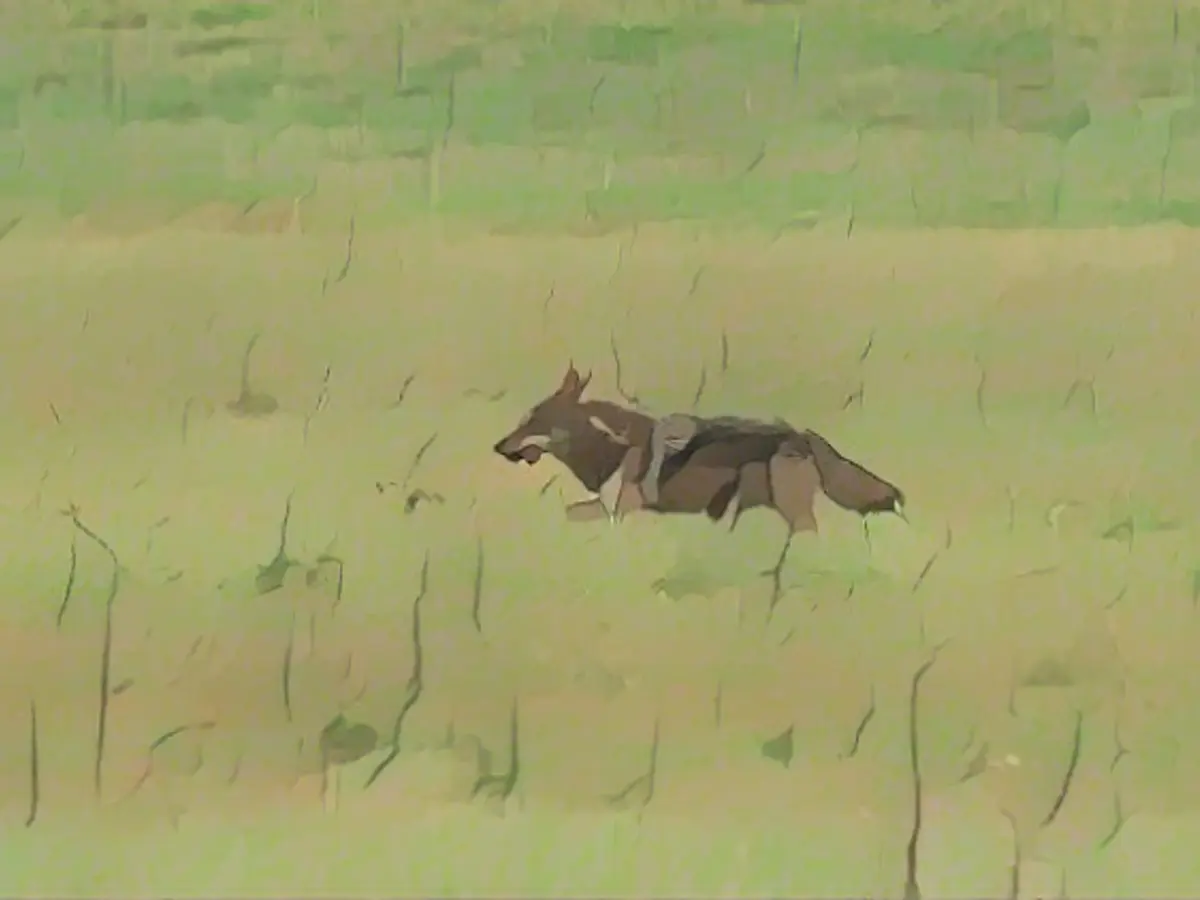EU wants to lower protection status for wolves
The legal framework for hunting wolves has been the subject of dispute for years. Farmers find wolf attacks on herds a thorn in their side. Others see the wolf as a very familiar species. The European Commission is now making an attempt. Whether it will succeed, however, is unclear.
The European Commission wants to relax the strict protection rules for wolves. It is proposing to lower the status of the wolf from "strictly protected" to "protected", the Brussels authority announced. This would allow the hunting of wolves to be approved if it does not endanger the conservation of populations.
EU Commission President Ursula von der Leyen said that the return of the wolf was good news for biodiversity in Europe. However, the density of wolf packs in some European regions has now become a real threat, particularly for livestock farming.
Von der Leyen referred to an analysis published at the same time, which shows that wolf populations have increased considerably over the past two decades and are colonizing ever larger areas. According to the analysis, there are now more than 20,000 wolves with mostly growing populations and expanding home ranges as well as packs with pups in 23 member states.
Number of wolf attacks on the rise
With the proposal to lower the protection status for wolves, the EU Commission is responding in particular to the demands of livestock farmers and farmers. They have been pointing to increasing problems for a long time. According to a report, the number of wolf attacks on livestock in Germany alone rose significantly to more than 1000 cases last year. More than 4000 farm animals were killed or injured.
It is not yet clear whether the German government will support the initiative. At the beginning of the year, Environment Minister Steffi Lemke had spoken out clearly against lowering the protection status for wolves and pointed out, among other things, that the shooting of individual conspicuous wolves is already possible today under certain conditions.
Around three weeks ago, the federal and state environment ministers agreed that problematic wolves that have climbed over protective fences and killed livestock can be killed in Germany much more quickly than before. Unlike before, it will not be necessary to wait for a DNA analysis first.
Lemke: "Don't act as if the wolf is garbage and can go away"
In a recent interview, shortly before the EU proposal, Lemke warned against demonizing the wolf. "It is the closest relative of one of our favorite pets, the dog, and therefore we should not act as if the wolf is garbage and can go away," said the Green politician. A balance must be struck between livestock grazing and the fact that the wolf has re-established itself in Germany.
Last week, a walker was possibly attacked by a wolf in Brandenburg. According to police reports, the 47-year-old was walking his dog in a wooded area when he came across the animal. It attacked the dog. When the man intervened, he was bitten several times and sustained serious injuries. Genetic tests are now to clarify whether the man was actually attacked by a wolf.
Proposal needs broad support
In order to implement the EU Commission's proposal, at least 15 of the 27 EU member states would have to agree to it as a first step. At the same time, however, they must together represent at least 65% of the total population of the EU. In the next step, the proposal would then also have to be submitted to the other parties to the so-called Berne Convention. This is intended to ensure the conservation of European wild plants and animals and their natural habitats throughout Europe and beyond.
Environmental and nature conservation organizations such as BUND, NABU and WWF criticized the EU Commission's approach and called for herd protection to be improved. "All scientific studies prove that the number of livestock kills depends on the quality of livestock protection and not on the number of wolves," said BUND chairman Olaf Band.
Commission President von der Leyen, on the other hand, was optimistic that solutions could be found to protect not only biodiversity, but also the livelihood of the rural population. The politician herself had a sad experience with an animal in the past. In September 2022, a gray wolf tore down her 30-year-old pony Dolly at her home in Lower Saxony.
Read also:
- Year of climate records: extreme is the new normal
- Precautionary arrests show Islamist terror threat
- UN vote urges Israel to ceasefire
- SPD rules out budget resolution before the end of the year
The European Parliament's Agriculture Committee's chairperson, Steffi Lemke, strongly opposes the EU Commission's proposal to lower the protection status for wolves, arguing against the demonization of the species and advocating for a balance between livestock grazing and wolf conservation. Despite criticism from environmental organizations, EU Commission President Ursula von der Leyen remains optimistic about finding solutions that protect both biodiversity and the livelihood of rural communities, as she herself experienced the loss of a pet to a wolf attack.
Source: www.ntv.de








